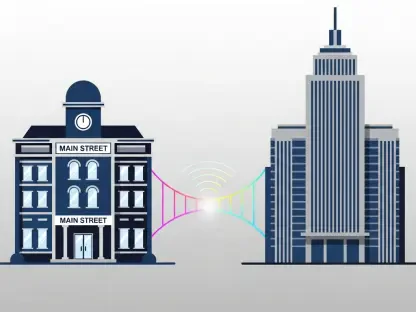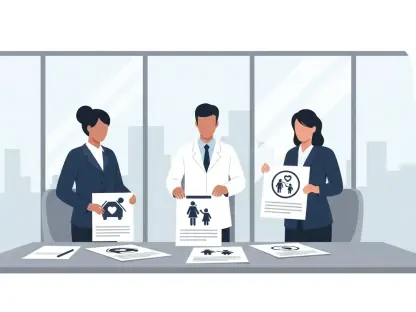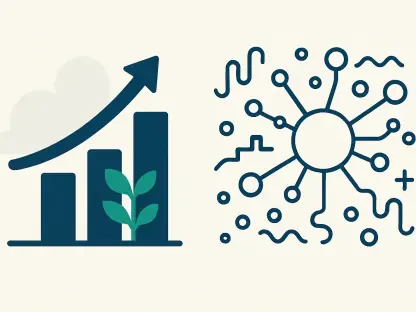Insurance companies, alongside their specialized partners, find themselves increasingly vital amidst global health crises. These collaborations are at the forefront of efficient response strategies, highlighted by recent case studies that emphasize their pivotal role. An exemplary instance is found in the partnership between RSA Insurance and Healix, which adeptly navigated the complexities of an international health emergency. During the COVID-19 pandemic, an RSA-insured employee based in the Middle East developed severe symptoms, presenting a unique set of challenges exacerbated by local instability and limited medical infrastructure. This case underscores the significance of preparedness and prompt response in high-pressure health scenarios.
Navigating Complex Health Emergencies
The Need for 24/7 Assistance Systems
The case involving the RSA employee showcases the indispensable nature of a round-the-clock support system in managing international health crises. The initial treatment of the employee’s severe COVID-19 symptoms proved inadequate, necessitating an immediate escalation of care. This urgency underscored the importance of having an accessible support structure to address medical emergencies efficiently. Insurers like RSA rely profoundly on partners such as Healix, which provide crucial expertise and logistical assistance in such daunting situations. The availability of constant medical guidance and support is essential not just for individual cases but as part of a broader strategy to ensure health-related issues are addressed with the precision they demand.
Leveraging International Healthcare Networks
In scenarios where local medical capabilities are constrained, tapping into international healthcare networks becomes critical. For the RSA employee, the scarcity of resources in the Middle East was apparent. This situation made it necessary for insurance companies to facilitate connections with global health institutions. The collaboration between RSA and Healix illustrates a seamless integration into an expansive network comprising hospitals, specialists, and emergency services. Effective partnerships offer access to better-equipped medical facilities, ensuring patients like the one in this case receive the best possible care. This approach is vital for facilitating efficient and safe relocations, enhancing the overall healthcare outcomes in challenging environments.
Logistics and Communication in Health Crises
Organizing Safe Patient Transfers
One of the most taxing aspects faced by insurers and partners like Healix during health emergencies is executing patient transfers under constraints of time, safety, and permissions. In the highlighted case, the patient’s deteriorating condition necessitated an air ambulance equipped with a biological containment unit for a safe transfer to a medical facility better prepared to handle his needs. Coordinating this transfer involved intricate consultations with local and international health authorities, a process that underscores the value of strong partnerships. By managing permissions and logistics with precision, those involved ensured the patient’s safe passage, exemplifying how teamwork contributes to positive health outcomes.
Effective Communication Across Regions
A critical component of managing international health crises is establishing efficient communication networks that span diverse regions and authorities. The COVID-19 case involving the RSA employee highlighted how vital it is for insurers and health partners to communicate effectively. Quick and clear communication channels with health authorities across different regions ensured swift decision-making and action, reducing the potential for delays that could jeopardize patient safety. The ability to synchronize efforts globally, including real-time updates and adaptations to evolving situations, forms the backbone of successful crisis management. Such communication frameworks enable coordinated responses that are vital in achieving timely resolutions during health emergencies.
Lessons in Crisis Management
The Importance of Strategic Partnerships
The RSA and Healix case serves as an exemplary model of how strategic partnerships between insurers and specialized health providers can significantly impact crisis management. Healix’s specialized knowledge and global network empowered RSA to navigate complexities efficiently. This partnership highlights the necessity for insurers to align with expert entities capable of handling multifaceted challenges during health emergencies. Ensuring robust, collaborative frameworks allows for the pooling of resources and expertise required to meet the demands of international healthcare crises, ultimately safeguarding the welfare of those affected.
Benefits of a Robust Support Network
In the face of global health crises, the role of insurance companies and their specialized partners has become increasingly crucial. These collaborations are central to effective response strategies, as evidenced by recent case studies emphasizing their essential contributions. A notable example is the partnership between RSA Insurance and Healix, which skillfully managed the intricacies of an international health emergency. This collaboration was put to the test during the COVID-19 pandemic when an RSA-insured employee stationed in the Middle East experienced severe symptoms. This situation posed a unique set of challenges, compounded by regional instability and a limited medical infrastructure. This particular case highlights the critical importance of preparedness and swift action in high-pressure health scenarios. By working together, insurance companies and their partners have become vital in navigating the complexities of global health issues, ensuring that those affected receive necessary care quickly and efficiently.









